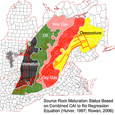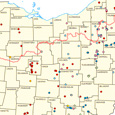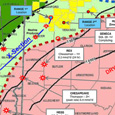Could Canadian Tar Sands be Shipped on the Great Lakes?
Friday, December 13, 2013
The Great Lakes may become a shipping lane for moving crude oil from Canada’s tar sands to refineries in Ohio, Pennsylvania and other Great Lake states, according to the Alliance for the Great Lakes.
A report, “Tar Sands Crude Shipping Meets the Great Lakes?,” prepared by the Alliance for the Great Lakes, warns that the lakes, the shipping fleet and the ports are not prepared to undertake a task like transporting mass quantities of crude oil.
Read it:
“The movement of oil across water increases the risks of oil in water, a clash in which the environment is the loser. The movement of more and more oil across Great Lakes waters, as is now proposed, raises the specter of more spills and more damage.”
The report continues to say that the Great Lakes region isn’t prepared to respond to an oil spill of great magnitude in the deep waters of the lakes.
The report cites the following shortcomings:
• A recent U.S. Coast Guard and Department of Homeland Security report on spill-response protocols for submerged oil found current methods for locating and recovering submerged oil inadequate.
• A “Worst-Case Discharge” scenario developed by the Coast Guard involves a Great Lakes vessel carrying a type of oil that is much different, and less damaging to the environment, than tar sands crude.
• Limited resources are available to learn about the risk of oil spills by vessels and oil-spill management in the region; most information about spills is outdated or discontinued.




